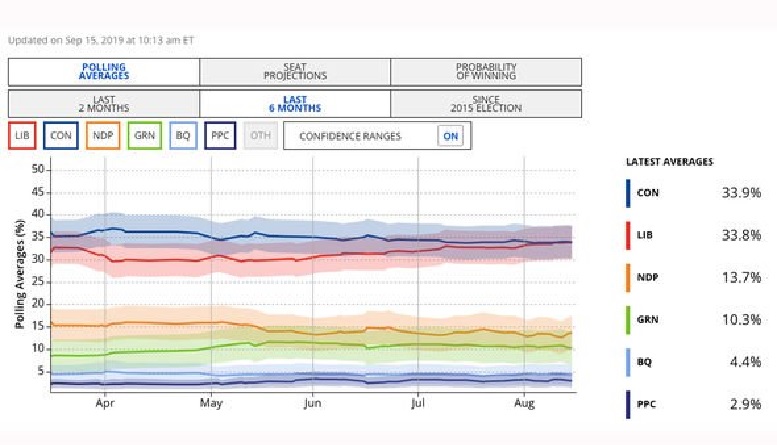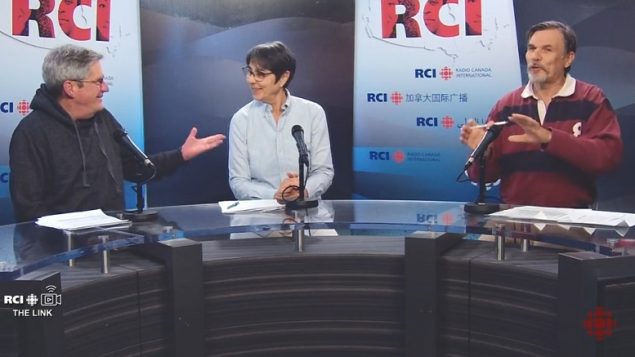Your hosts Lynn, Terry, Marc (video of show at bottom)
Canada’s election and political opinion polls: Can they influence voters?

Voter survey for upcoming election. Literally dozens of polls are conducted, on voter intentions, issues of concern, leader popularity, government record, and so on, additionally sometimes broken down further into respondents sex, income, age etc. (CBC)
In any major election, there are almost always dozens of opinion polls taken, and often on a daily basis. They can survey people’s opinions on the popularity of leaders, on the popularity of parties, voter intentions, opinions on policies and so on.
But can they, do they influence voters? Are they reliable, and can they be skewed for partisan ends?
Marc speaks with Peter Loewen, political science professor at the University of Toronto and the Munk School of Global Affairs and Public Policy
Bias, discrimination prevent people getting obesity care: study

People with obesity “shouldn’t look at this being their own fault…obesity is a chronic disease,” says a medical specialist. (iStock)
Obesity is now being accepted more as a chronic disease, but there is still a great deal of bias against obese people as saying the problem is their own fault. This attitude results in people not getting the type of care they need.
Lynn spoke with Arya Sharma, the scientific director for the non-profit Obesity Canada.
Conservation group exposes widespread seafood fraud in Canada

A seafood counter is shown at a store in Toronto on Thursday, May 3, 2018. A new study found 61 per cent of seafood products tested at Montreal grocery stores and restaurants were mislabelled. (Nathan Denette/THE CANADIAN PRESS)
It’s quite a concern. The type of fish Canadians think they’re buying has a good chance of being something else. A multi-year, cross-Canada testing of fish samples through DNA, shows an average of 41 per cent of samples were not the fish type advertised.
This means often paying for an expensive type of seafood, but getting a lower quality species. In some cases, species were also found to be of types banned in some countries, and the situation is also likely to be a conduit for illegal caught fish, and illegal types.
Levon spoke to Josh Laughren, executive director at Oceana Canada
Video of show (RCI YOUTUBE channel- show starts at 0;40)







For reasons beyond our control, and for an undetermined period of time, our comment section is now closed. However, our social networks remain open to your contributions.